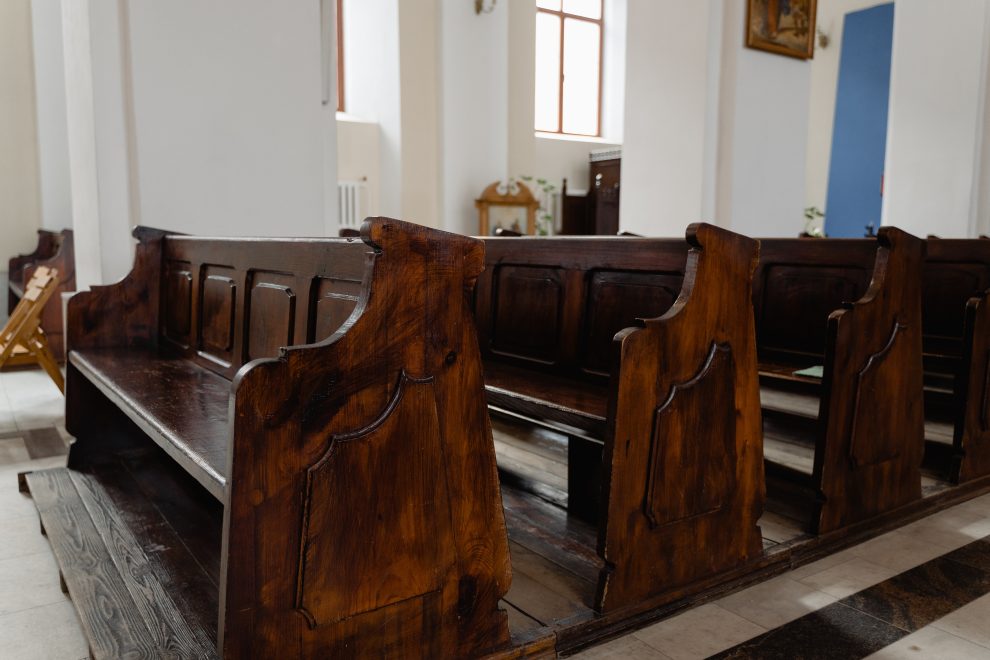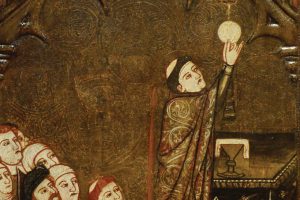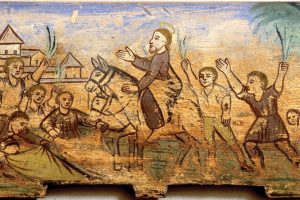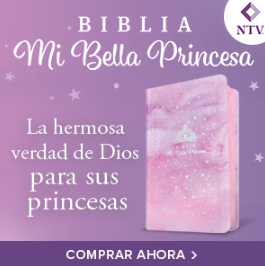Former denizens of evangelical arenas are finding new homes in the age-old sanctuaries of Catholicism.
It took Mark Shea four tries to become a Catholic.
Raised without any religious instruction, Shea had embraced evangelical Christianity as a college student at the University of Washington in the late 1970s. “There was a little non-denominational group that came together on the dorm floor next to mine,” Shea says. “We got together for Bible study, Saturday night praise and worship, that sort of thing.”
Shea took his conversion to Christianity seriously, reading the Bible regularly and embracing the doctrines of his new faith with vigor. Over the next few years, though, he found that there were things that troubled him about evangelical Christianity, such as the way interpretations of scripture seemed to vary from congregation to congregation. Shea’s way of dealing with his doubts was to read voraciously. As he did so, he found himself increasingly embracing Catholic answers to his questions.
His path to Rome, however, was not a smooth one. During his first RCIA class, Shea was wrestling with some of the things he had done in college. “The priest sort of dismissed it. ‘Storms of youth, my lad,’ he told me. But I really wanted to know what the church taught about this.” Shea ultimately left the program.
He didn’t last much longer in his second attempt at RCIA. “The catechist was trying to explain the Exodus story, and he compared it to the American story of Paul Bunyan digging the Grand Canyon,” Shea says. “You weren’t meant to take it literally. I was pretty sure that this was not what the church taught about the Book of Exodus. I decided the class wasn’t helping me.”
In his third RCIA program, “the guy was scrupulously orthodox,” Shea recalls. Alas, he was also a terrible teacher. “He was reading something about the temptation of Jesus in the desert and said that ‘Jesus was not tempted interiorly,’ ” Shea says. “I raised my hand and asked him what it meant to be tempted if you weren’t tempted interiorly. He got this deer-in-the-headlights look and just re-read the same passage.” Shea dropped out of the class soon after that.
“Finally, in frustration, I did what evangelicals do,” Shea says. “I formed a study group.” Calling themselves the Seattle Catholic Study Group, Shea and a group of friends slowly worked their way through a catechism and various church documents. They focused particularly on doctrines that have divided Catholics and Protestants, such as the authority of scripture and prayer to Mary and the saints. In the end Shea and many others in the group were convinced that what the church taught was true.
Shea and his friends showed up at the office of a local priest and asked to be received into the Roman Catholic Church. The priest was a bit flummoxed to find himself presented with a group of evangelicals quoting church teaching. “I didn’t realize at the time that this was a ‘don’t try this at home’ kind of thing,” Shea says. After some extensive questioning, the priest agreed to receive them into the Catholic Church 10 days later on the Fourth Sunday of Advent in 1987.
Shea has gone on to become involved in the Catholic apologetics movement, writing a number of books, including By What Authority: An Evangelical Discovers Catholic Tradition (Our Sunday Visitor) and This Is My Body: An Evangelical Discovers the Real Presence (Christendom Press). Shea’s story resembles a number of other high-profile evangelicals who have converted (or, in some cases, “re-verted”) to Catholicism over the last two decades. They include scripture scholar Scott Hahn, former Speaker of the House Newt Gingrich, literary critic Thomas Howard, and radio host Al Kresta.
Given the popularity of books and programs on conversion stories, such as Patrick Madrid’s Surprised by Truth series and EWTN’s The Journey Home, one could be forgiven for thinking that the conversion of evangelical Christians to Catholicism is a growing trend. The available evidence, however, suggests that there has been movement in both directions.
According to the Pew Forum on Religion and Public Life’s 2007 Religious Landscape Survey, roughly 8 percent of Catholics were raised in other Christian denominations. This compares with 9 percent of evangelical Christians who were raised Catholic.
While high-profile conversions may make the news, the data suggest that the church loses more members than it brings in. “For the Catholic Church, four people leave for every one who joins. That is a much higher ratio than for any other religious group,” says Greg Smith, senior researcher at the Pew Forum.
At the same time Smith believes it is important not to downplay the magnitude of conversions to Catholicism. “Roughly 2.5 percent of American adults have converted to Catholicism. That is a huge number of people.”
Fast friends
It is easier today than ever for evangelicals to consider entering the Catholic Church as the historic animosity between the two communities is on the wane.
“Vatican II was critical,” argues Mark Noll, an evangelical historian who teaches at the University of Notre Dame. “The fact that the Catholic Church was encouraging the faithful to read scripture and talking about the church as the ‘people of God’—which sounded like the Protestant idea of the ‘priesthood of all believers’—started to erode some of the prejudices that evangelicals had about Catholics.”
Noll notes that Popes John Paul II and Benedict XVI have been highly regarded in the evangelical community. “Their writings are very focused on the person of Jesus Christ and very attentive to scripture. That’s important to evangelicals.”
Politics has also played a role. After Roe v. Wade legalized abortion in 1973, evangelicals and Catholics often found themselves on the same side of a burning political issue. During the 2004 presidential campaign, Noll says, one evangelical leader wryly observed that “we used to be afraid that John Kennedy would follow the pope. Now we are afraid that John Kerry won’t follow the pope!”
The rapprochement between the two communities was strengthened by the 1994 statement Evangelicals and Catholics Together, drafted by a group convened by Charles Colson of Prison Fellowship Ministries and Father Richard John Neuhaus, founder of the journal First Things. Neuhaus, a former Lutheran minister, had converted to Catholicism in 1990 and was ordained a priest a year later. He died in 2009.
Rather than focusing on areas of disagreement, the document suggested that all Christians faced the common challenge of modern secularism. “Evangelicals and Catholics dare not, by needless and loveless conflict between ourselves, give aid and comfort to the enemies of Christ,” it reads.
As Catholics and evangelicals become more familiar with each other, they are more likely to be attracted by something that their own tradition lacks, says Noll. “The great attraction of Catholicism is history and tradition. That’s a weakness in evangelical Christianity.” By the same token, he adds, some Catholics may be attracted by the emphasis on personal conversion and strong community bonds that one often finds in evangelical churches.
Noll also observes that as Protestants enter, the Catholic Church will increasingly be influenced in some way by evangelical culture. American Protestantism has always had strong evangelical elements. There’s not a neat line between “evangelical” and “mainline” churches. The weakening of denominational boundaries and the growth of “parachurch organizations” such as Promise Keepers and Campus Crusade for Christ has only amplified this trend.
Apologetics accepted
The entry of evangelicals into the Catholic Church is having an impact especially in a revived interest in Catholic apologetics. Former evangelicals such as Dave Armstrong, Scott Hahn, Marcus Grodi, and Mark Shea have published books and audio recordings aimed at defending key Catholic doctrines against their critics.
Cardinal William Levada, prefect for the Congregation of the Doctrine of the Faith, suggested that Catholics need to recover the evangelical zeal of their missionary forbears at a 2010 conference in Rome on the “new apologetics.”
Not all Catholics are as impressed with the quality of the new apologetics. Theologian Richard Gaillardetz, who will begin teaching at Boston College this month, has criticized what he sees as the movement’s ahistorical and triumphalist presentation of the Catholic faith.
Jesuit theologian Thomas Rausch, who has been involved in ecumenical dialogue with evangelicals for more than two decades, appreciates the passion for sharing their faith.
“They often bring a real enthusiasm for evangelization,” says Rausch, editor of a collection of essays titled Evangelicals and Catholics: Do They Share a Common Future? (Paulist Press). “Recent popes like Paul VI and John Paul II have written wonderful things about evangelization, but Catholics are still not a very evangelical community. We don’t have a strong sense that there is something special or unique about Catholicism that we should be bringing to others.”
Nevertheless, “they need to understand that you don’t solve all theological problems by appealing to the catechism and papal documents,” he adds.
The fact that many of the new apologists strongly defend doctrines questioned by many cradle Catholics—such as the church’s teaching on contraception or the ordination of women—has also been a point of tension. Shea says this is sometimes a cultural difference.
“Evangelical converts . . . wonder why you would stay with a church you disagree with,” Shea says. “Cradle Catholics don’t think that way. They see the church as family. You may think your old man is crazy, but you don’t stop being part of the family.”
Shades of red
Politics has been another area of occasional conflict. Some Protestants who have entered the church, such as pundit Deal Hudson and Neuhaus, have worked hard to align Catholics with the Religious Right and the Republican Party. Hudson, a former Baptist who now edits the online journal Inside Catholic, has made a number of controversial statements in recent years, such as his defense of waterboarding and his call for a “Catholic Tea Party” to confront what he called the “liberal politics” of the U.S. Conference of Catholic Bishops.
Shea has no qualms about describing the Democrats as the “evil party” because of their support for abortion rights. Nevertheless, he argues that “politically conservative Catholics often mistake fidelity to the GOP for fidelity to the tradition.”
Shea found himself subjected to harsh criticism when he criticized a number of high-profile Catholics who defended the Bush administration’s policies on torture. “I’ve lost friends over this,” says Shea, who was surprised that so many conservative Catholics would accept an “ends justify the means” argument.
While these controversies have consumed energy among Catholic writers and intellectuals, it is unclear what impact they are having in the pews. Rausch, who has worked with parishes across the Archdiocese of Los Angeles, has not seen evidence of any serious tensions between cradle Catholics and evangelical converts. “To be honest, the most serious problem I see is tensions between converts and their families, particularly in the Latino community. They want to know how to deal with family members who think they have joined a false church.”
Fundamental differences
After entering the church in 1987, Sherry Weddell found that asking questions that came naturally to evangelicals sometimes produced a negative reaction among Catholics. Weddell was interested in working in RCIA and went to talk to the director of religious education at her parish. At one point she asked if the parish did any follow-up with those who had been baptized to see if they were continuing to grow in their faith. “The DRE looked at me oddly and said ‘Well, no, that would be intrusive.’
“Evangelical churches are always asking these questions,” says Weddell. “We always wanted to know if our programs were effective, whether they were actually helping people to become disciples. If they weren’t, we scrapped them. We even asked questions about our pastor’s effectiveness. But when I tried to ask these questions in my parish, people would look at me like I was crazy.”
Raised as a self-described “fundamentalist Baptist,” Weddell drifted away from Christianity in high school. During her junior year of college, she had an experience that would change the direction of her life. “I had this tradition of setting aside one day a month for prayer and reflection. During one of these days, I was passing a gorgeous old Catholic church and decided to look inside. When I crossed the threshold I suddenly felt the presence of God in a way that I hadn’t before. I was hooked and started doing all my praying in Catholic churches.”
Frustrated by her experiences with adult formation, Weddell joined with Dominican Father Michael Sweeney to found the Catherine of Siena Institute, dedicated to helping lay Catholics discern their charisms, gifts given by the Holy Spirit to individuals for the benefit of the church, whether prophecy or administration. The institute claims that more than 55,000 Catholics worldwide have gone through its structured discernment process.
Some Catholics feel that Weddell’s approach is too “evangelical.” The fact that the institute is a project of the western province of the Dominican order has not shielded her from criticism from some of the more fevered Catholic corners of the Internet. The response from church leaders, however, has been largely positive. “We’re very meticulous about teaching with the church,” says Weddell.
Weddell is currently working to develop new programs aimed at helping ordinary Catholics evangelize. “Catholics have a wonderful evangelical and missionary heritage that is going unexplored and unrecognized,” says Weddell. “Many Catholics have never tried to articulate the story of Jesus in a way that can awaken the desire for faith in others. We need to help people tell that story.”
While she’s been a Catholic for more than 22 years, Weddell continues to see her evangelical experience as an asset. “One of the prices of schism is that Protestants grow up rejecting things that are Catholic and Catholics grow up rejecting things that are Protestant,” she says. “Evangelicals are asking questions that we need to be asking.”
This article appeared in the August 2011 issue of U.S. Catholic (Vol. 76, No. 8, pages 22-26).
Image: MART PRODUCTION from Pexels














Add comment